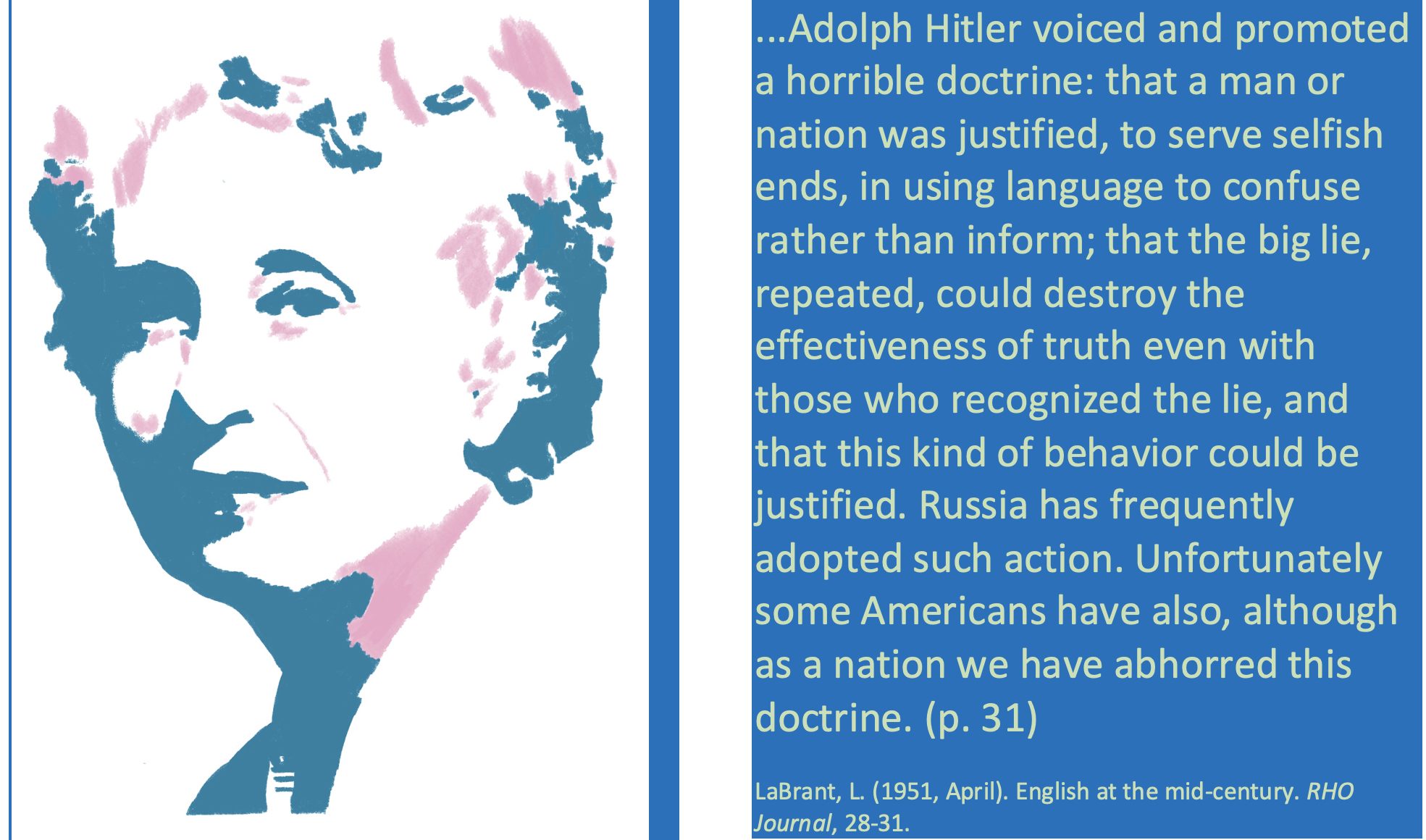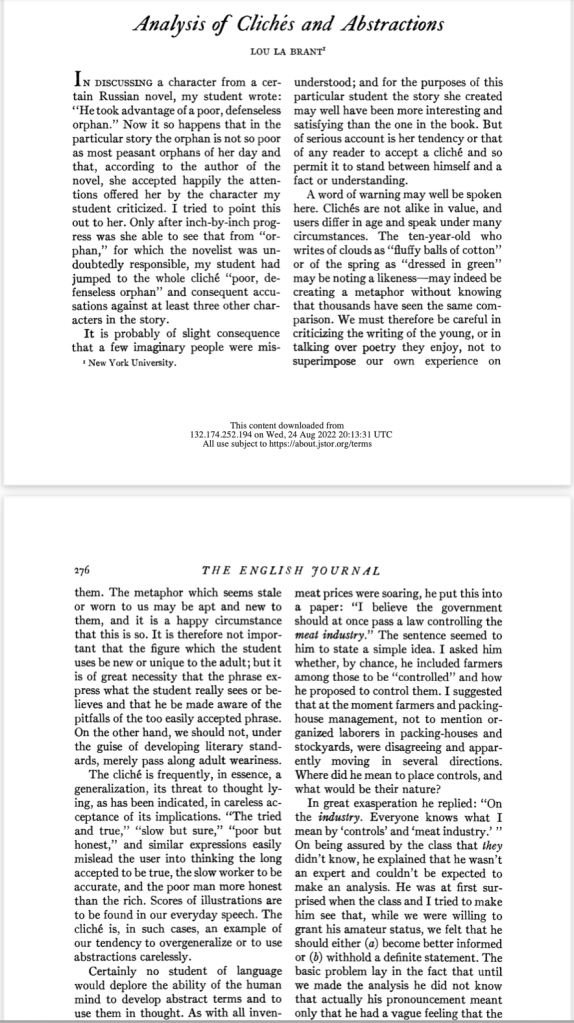LaBrant, L. (1949, May). Analysis of clichés and abstractions. English Journal, 38(5), 275-278. http://www.jstor.org/stable/807545
LaBrant examines the use of cliches and abstractions in student writing, noting that their use is often misunderstood by teachers and created by prompted writing. This is a nuanced and direct examination of the power of language as well as the need for student engagement and choice in writing.
Quoting LaBrant:
Only after inch-by-inch progress was she able to see that from “orphan,” for which the novelist was undoubtedly responsible, my student had jumped to the whole cliche “poor, defenseless orphan” and consequent accusations against at least three other characters in the story.
…But of serious account is her tendency or that of any reader to accept a cliche and so permit it to stand between himself and a fact or understanding.
A word of warning may well be spoken here. Cliches are not alike in value, and users differ in age and speak under many circumstances….We must therefore be careful in criticizing the writing of the young, or in talking over poetry they enjoy, not to superimpose our own experience on them. The metaphor which seems stale or worn to us may be apt and new to them, and it is a happy circumstance that this is so. It is therefore not important that the figure which the student uses be new or unique to the adult; but it is of great necessity that the phrase express what the student really sees or believes and that he be made aware of the pitfalls of the too easily accepted phrase. On the other hand, we should not, under the guise of developing literary standards, merely pass along adult weariness. (pp. 275-276)
…The cliche is, in such cases, an example of our tendency to overgeneralize or to use abstractions carelessly.
Certainly no student of language would deplore the ability of the human mind to develop abstract terms and to use them in thought. As with all inventions, however, the value of an instrument lies not only in its power but in the care and understanding with which it is used. (p. 276)
It should be noted that such analysis is made much more easily when the writer is dealing with a problem in which he has some stake and for which he has assumed the initiative in writing. If the statement comes from a workbook or from the teacher’s assignment, it is impossible to hold the writer to an understanding of meaning. Sometimes we ourselves deliver definitions (generalizations) meaningless to children.
“A verb is a word which expresses action, being, or state of being,” we tell youngsters who cannot possibly understand that “being”and “state of being” cover the various steps by which assertions of identity, classification, and evaluation move through various stages of sensory and logical verification. We assign topics for writing, well knowing that they are beyond the real understanding of our pupils and that consequently these young writers must fall back on vague and meaningless generalizations. (p. 277)
Assignments in literature frequently encourage undue generalizing….We teachers cannot escape responsibility for much unsound use of abstractions. Frequently we require it; the cliche is not confined to pupil writing.
Generalizations, abstractions? Yes—when we know what they are and that back of them must be knowledge. Honesty is itself a factor in thinking. Responsibility—a sense of needing to know, of limiting words to what one understands—all these are involved in analyzing the cliche and the abstraction. There are many ways of teaching how to think. This is offered as one. (p. 278)
First pages:


5 thoughts on “Analysis of Cliches and Abstractions (1949)”